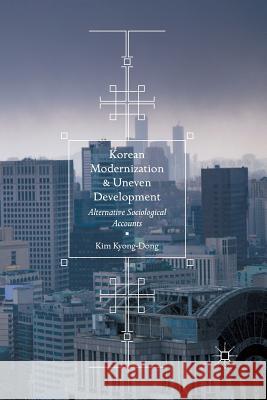Korean Modernization and Uneven Development: Alternative Sociological Accounts » książka
topmenu
Korean Modernization and Uneven Development: Alternative Sociological Accounts
ISBN-13: 9789811098871 / Angielski / Miękka / 2018 / 286 str.
Kategorie:
Kategorie BISAC:
Wydawca:
Palgrave MacMillan
Język:
Angielski
ISBN-13:
9789811098871
Rok wydania:
2018
Wydanie:
Softcover Repri
Ilość stron:
286
Waga:
0.44 kg
Wymiary:
23.39 x 15.6 x 1.65
Oprawa:
Miękka
Wolumenów:
01
Dodatkowe informacje:
Wydanie ilustrowane











